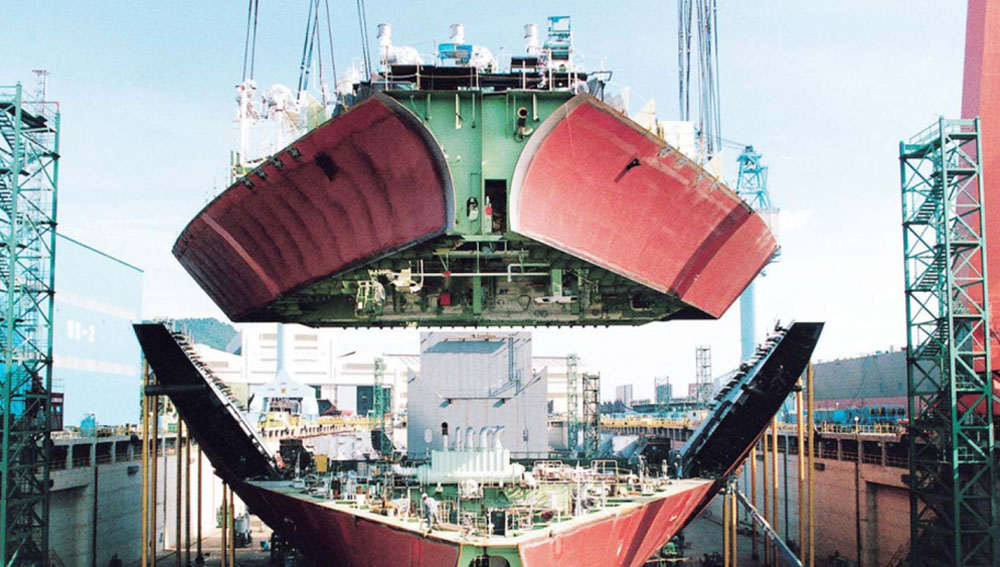Shipbreaking or ship recycling is defined as one of the most hazardous jobs in the world by the International Labour Organisation (ILO). It is the process by which old ships and vessels are taken apart, dismantled, and its components are recycled. As observed by the International Maritime Organisation, the ship recycling process is most productive as nothing from a dismantled ship goes into waste. The equipment and components of a recycled ship can be reused in its entirety in other industries. If done efficiently and economically friendly, it can be turned into a green business by using the recycled components for even building new ships. The darker side of ship breaking is that it creates a variety of pollutions, including air, land, water, and noise due to the generation of hazardous and non-hazardous wastes. As most of the works are done manually, it also leads to many occupational hazards to the manual workers if the working conditions are substandard and not in compliance with international safety standards.
India is in the frontline among the countries that are engaged mainly in the business of ship breaking. Apart from India, South Asian countries like Bangladesh, China, and Pakistan also give massive competition in the ship breaking industry. The ship owners mostly choose these countries due to the relaxed environment regulations and labor standards followed by the Countries in this industry.

Joy Thattil
Maritime Lawyer & Partner @ Callidus
Dubai, Singapore & India
joy@calliduscmc.com
In India, the condition was no different since the Central Government announced the ship breaking industry as a small scale industry. The business started to flourish under minimal regulations concerning environmental protection and labor standards.
The Supreme Court decision in Research Foundation for Science, Technology and Natural Resource Policy v. Union of India (2007) 15 SCC 193, provided an impetus to the legal framework governing ship recycling in India. According to the directions put forth by the Supreme Court in this case, the Central Government formulated the Shipbreaking Code in 2013, providing a comprehensive scheme for regulating shipbreaking in India. But the Code failed to address many provisions contained in the Hong Kong International Convention for the Safe and Environmentally Sound Recycling of Ships, 2009, adopted by the International Maritime Organisation. This Convention ensures that ships, when being recycled after the end of their operational lives, do not pose any unnecessary risk to the environment and human health and safety. The Convention details out the procedure to be followed for the survey and certification of ships as well as for the authorization of ship-recycling facilities.
Realising the need for an inclusive legislation on ship recycling, the Indian legislature enacted the ‘The Recycling of Ships Act, 2019’, and on December 13, 2019, the Act came into force after receiving the assent of the President. This Act is an attempt to bring about an environment-friendly shipbreaking practice in India. The object of the Act is to provide for the regulation of recycling of ships by setting certain standards and laying down the statutory mechanism for enforcement of such standards.
The Recycling of Ships Act, 2019, is in tune with the Hong Kong Convention in many aspects, and the Act restricts and prohibits the use or installation of hazardous materials, which is uniformly applicable to all ships in India, irrespective of whether a ship is meant for recycling or not. For new ships, such restriction or prohibition on the use of hazardous materials will be immediate, that is, from the date the legislation came into force. In contrast, the existing ships shall have a period of five years for compliance. However, such a restriction or prohibition on the use of hazardous materials does not apply to warships and non-commercial ships operated by Government.
Under this Act, ship recycling facilities are required to be authorized, and ships shall be recycled only in such authorized ship recycling facilities. This Act also provides that ships shall be recycled following a ship-specific recycling plan. Ships to be recycled in India shall be required to obtain a ‘Ready for Recycling Certificate’ under the Hong Kong Convention.
The Act also imposes a statutory duty on ship recyclers to ensure safe and environmentally sound removal and management of hazardous wastes from ships. Appropriate penal provisions have been introduced in the Act to deter any violation of statutory provisions.
India, being the global leader in ship breaking, aims at boosting its economy as well as the ship recycling industry through the enactment of this legislation by bringing about an environment and labor-friendly regulatory mechanism in the ship breaking process.
